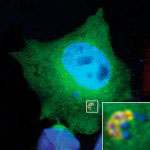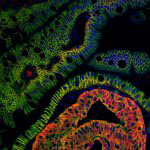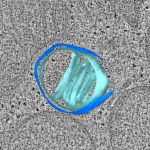
AMPA receptors are among the most commonly found receptor in the nervous system and play an important role during memory formation and learning. They are composed of four subunits with various possible combinations. Although AMPA receptors act predominantly as heteromeric complexes, structural studies to date have focused on assemblies made from four copies of the same subunit.




